Having a pet is one of life’s greatest joys, so I find it heartbreaking to see people struggling with guilt, worry and frustration when their pet is too anxious, fearful or hyperactive to really settle down and enjoy life.
Having a calm and happy companion allows us to feel more at ease as well, and the sense of well being we get from a relaxed relationship with our pet can have a profoundly positive impact on our life (it’s been proven!).
So today we look at what you can do to raise a relaxed, happy pet.
Research your pet’s species and breed
Every pet is unique, and understanding their natural instincts and tendencies is crucial. It’s important to research your pet’s species and breed characteristics. Dogs, cats, rabbits, and other animals have specific needs and preferences that, when met, contribute hugely to a more relaxed and contented pet.
Understand the importance of early experiences
Every pet has a formative period – a time of huge development, when they build their social relationships and learn what to expect from the world. For puppies this is from 8 – 16 weeks, and for kittens it’s around 3-9 weeks. The experiences your pet gets (or doesn’t get!) during this time will have the biggest impact on how relaxed they will be in future. Lots of positive exposure to people, other animals and various sights, sounds and experiences will set your pet up to be confident and calm. Negative experiences or a simple lack of exposure can both lead to a pet that’s fearful and stressed. Make the most of your pet’s formative period by giving them tonnes of socialisation with people, dogs and other animals along with gradual exposure to the various stimuli they’ll experience in their lives (car travel, crates, loud noises, thunder, water, grooming etc).
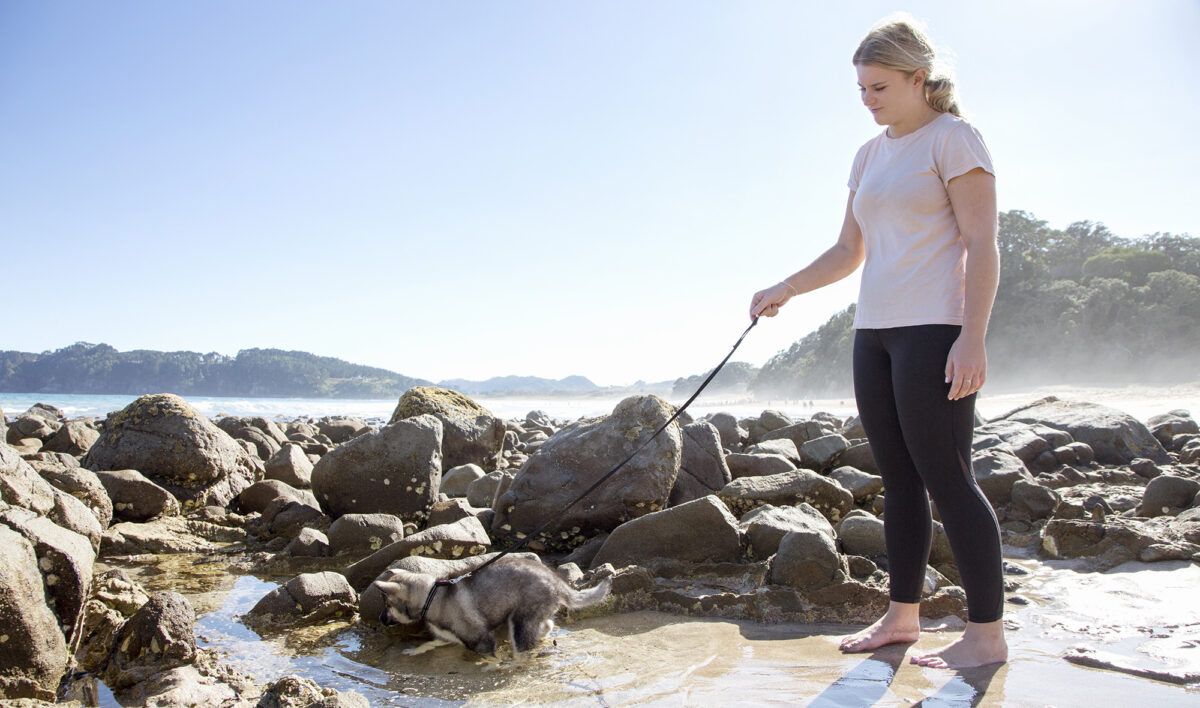
Avoid early frights
Avoid giving your pet any big frights while they are young, as this can lead to fearful reactions in future. For example, don’t throw your pup in the water to try and teach them to swim (it will have the opposite effect), don’t let kids mishandle and accidentally hurt your kitten, and secure pets carefully in the car so they don’t get thrown around and become frightened of car travel. Your pet can develop a strong aversion to anything or any person they have a negative experience with in early life. Instead, gently and gradually expose your pet to all new experiences, ideally using a clicker and high value food rewards to help build positive associations.
Socialisation
I touched on this above, but it’s worth hammering the point home. Lots of early socialisation will help your pet feel relaxed and confident with all different types of people, dogs and other animals as they grow up. When cats get lots of early contact with humans, they’re much more likely to be affectionate and confident around people, and less likely to hide or scarper. Dogs need regular early socialisation with people of all age, race and gender (including children and babies), along with a range of dog types and breeds and domestic animals like cats, chickens and sheep. Doing extensive early socialisation leads to a much happier, more relaxed, more confident pet.
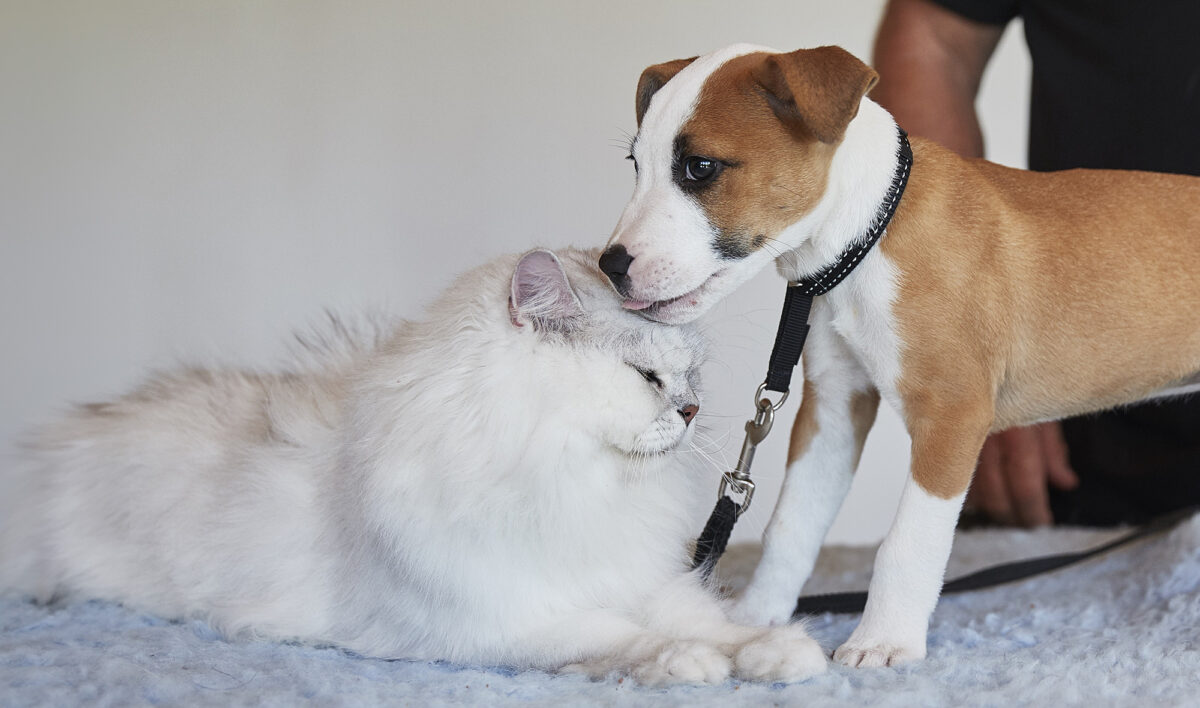
Build a trusting bond
When your pet has a healthy bond with you, they feel more secure and relaxed. Build a strong bond through lots of loving contact, play, training, quality time together, and showing your pet you are in charge of resources (i.e. dishing out their dinner directly to them rather than using an auto-feeder).
Exercise
As well as being essential for health, meeting your pet’s exercise needs greatly helps their ability to feel at ease. Whether you’ve got a dog, cat, rabbit or horse, work out what is appropriate for their species, breed and age and find a way to ensure they get the exercise they need. Daily walks, active games, agility and outdoor adventures all work well. Cats love interactive toys and climbing structures. If you don’t have time to exercise your pet adequately each day, find a way to make it happen – hire a dog walker, send your dog on pack walks, or consider doggy daycare.
Enrichment and stimulation
Boredom and lack of stimulation can lead to stress and unwanted behaviours. The amount of activity your pet needs will vary based on their species and breed – a highly intelligent border collie, for example, will need a huge amount of mental stimulation to be relaxed. A cat or lower energy dog breed will require less. Provide toys, puzzles and activities that engage your pet’s mind – training is excellent mental stimulation too! There are hundreds of easy games you can set up for your pet at home that will provide really great enrichment, have a look on YouTube.
Positive reinforcement training
Training your pet using positive reinforcement fosters a trusting relationship, builds your pet’s confidence, reduces their anxiety and helps them learn what’s expected of them in this world – all of which leads to a calmer pet. Reward good behaviour with treats, praise, or affection, to reinforce the behaviours you want to see.
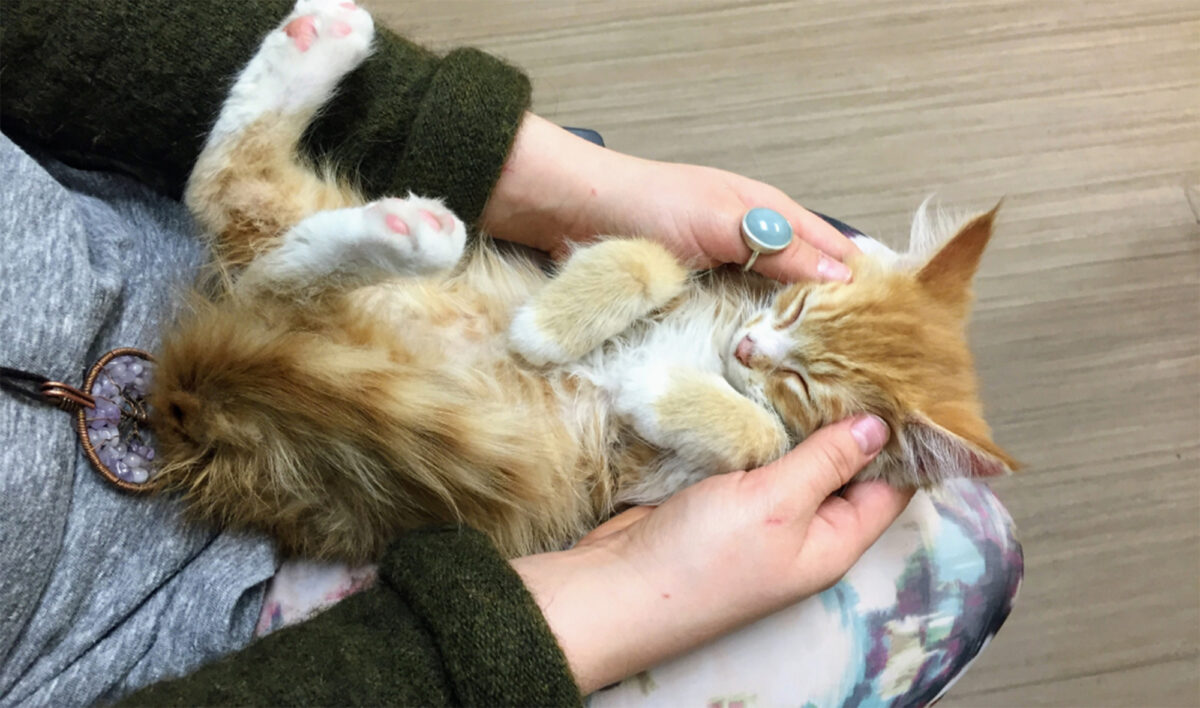
Create safe spaces
Pets appreciate having a designated safe space where they can retreat when feeling overwhelmed. Most pets prefer a small, darkened space to help them feel safe, so I usually suggest a covered crate. If you introduce a crate early on, it will likely become your pet’s happy place that they go to when they need to settle. But a cozy corner or secluded bedroom works well too.
Lead by example
One of the most important things you can do to have a relaxed pet, is to be calm with them yourself. A dog’s sense of smell is beyond imagination, they can smell your pheromones and know when you are angry, stressed, frustrated, anxious, fearful or upset. As well as that, your posture, voice tone and body tone are speaking to your pup all the time. It’s hard to fool a dog as their postural communication skills and olfactory acuity are much better than ours. Our pets take their lead from us, so if you want a relaxed pet – try to exude calm confidence when you’re with them.
Don’t make too much fuss
Don’t overly fuss over your pet, especially if they’re feeling a bit anxious. This will just reinforce those anxious responses. For example, if your pet doesn’t like it when you leave – make sure you don’t make a big fuss when you come and go from the house.
Help them move past negative experiences
Particularly with dogs, if you see your pet get a fright from something, help them move past that fear reaction and increase their resilience. For example, if someone opens an umbrella unexpectedly and it frightens your pup, help your pup get calm again by doing some basic commands with high value treats. Then move close to the umbrella, treating your pup as you go. Gradually move closer and closer, dishing out the treats, until your pup is right beside the umbrella and interacting with it (place treats on the actual umbrella, even!). Using a clicker or marker speeds up this desensitisation process considerably. Doing this helps your pup learn how to recover from getting a fright and move past it.
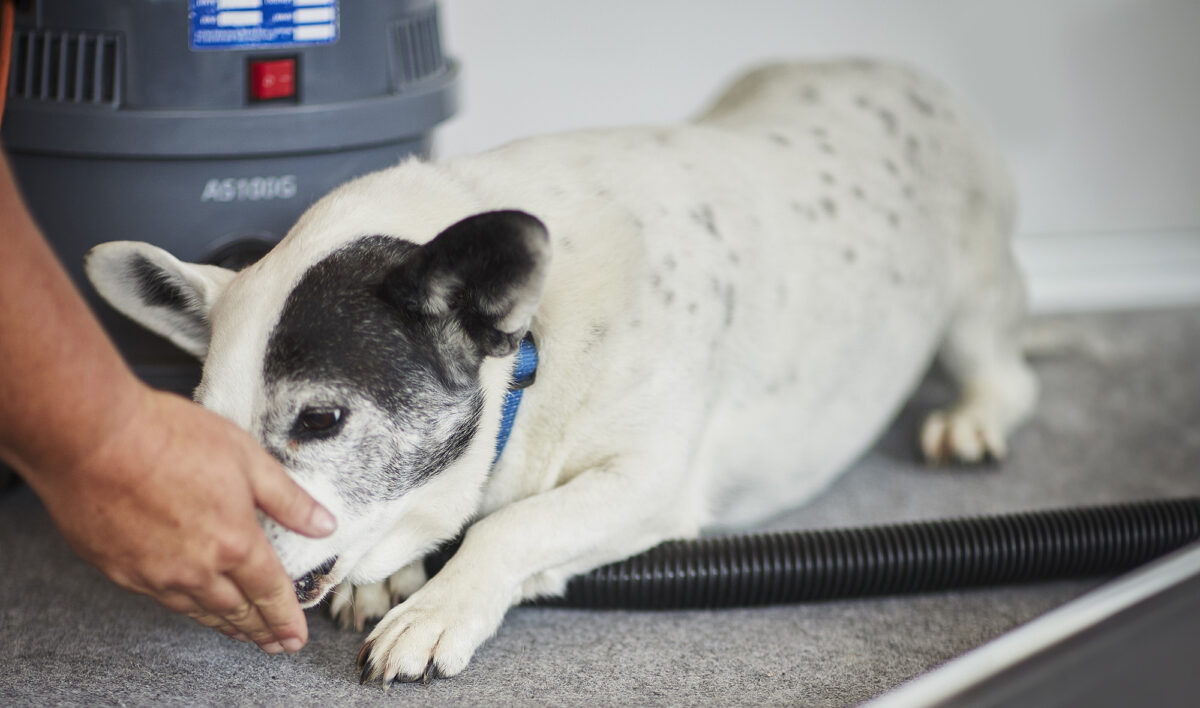
Nip problematic behaviours in the bud
If your pet starts to demonstrate problematic behaviours like fear, reactivity, aggression or anxiety, use training to treat the issue as soon as you can. The longer you leave it, the more ingrained those behaviour patterns will become and the more difficult it will be to help your pet get back to being relaxed and calm. If you have a puppy or dog you want to train, use Family Health Diary’s exclusive discount code FHD15 to get 15% off any of my virtual training courses at www.dogzen.com
Missed your chance and now have a scaredy cat or dog?
Make sure you’re signed up to Family Health Diary so you get the first look at next month’s article – a step by step guide on what to do if you’ve missed your chance to raise a relaxed pet, and now need advice on how to help a timid or fearful pet![/vc_column_text][/vc_column][/vc_row]






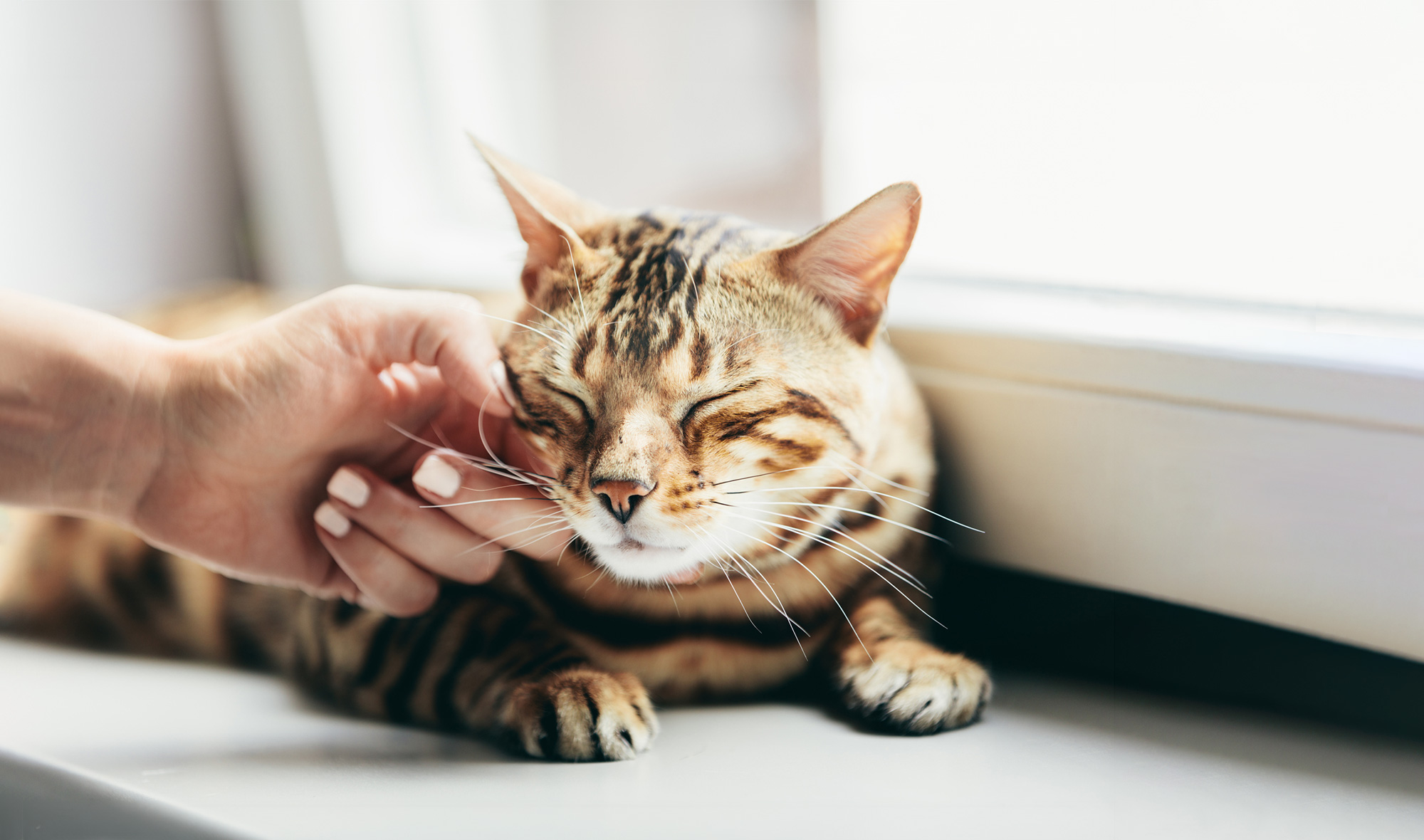
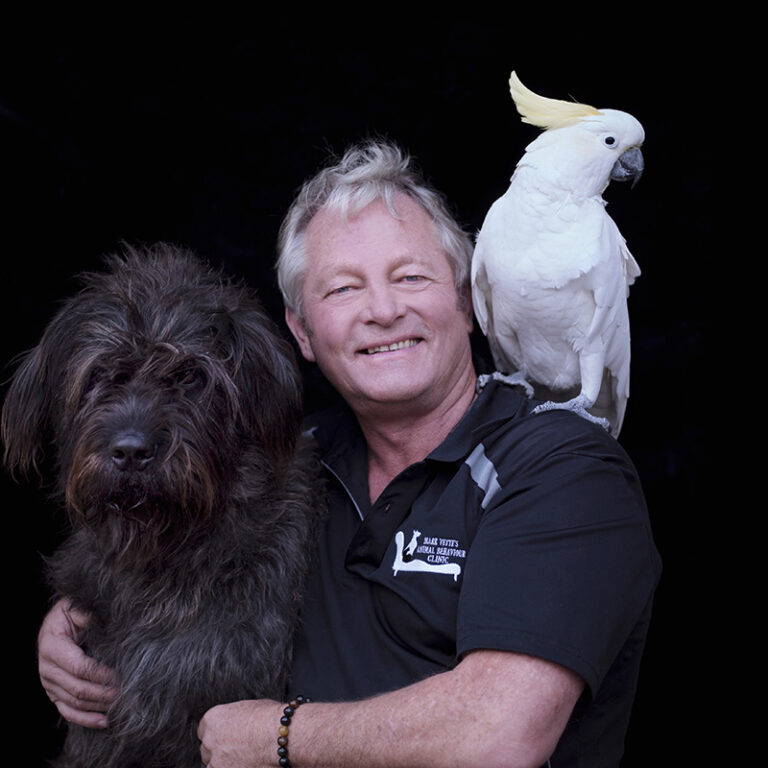






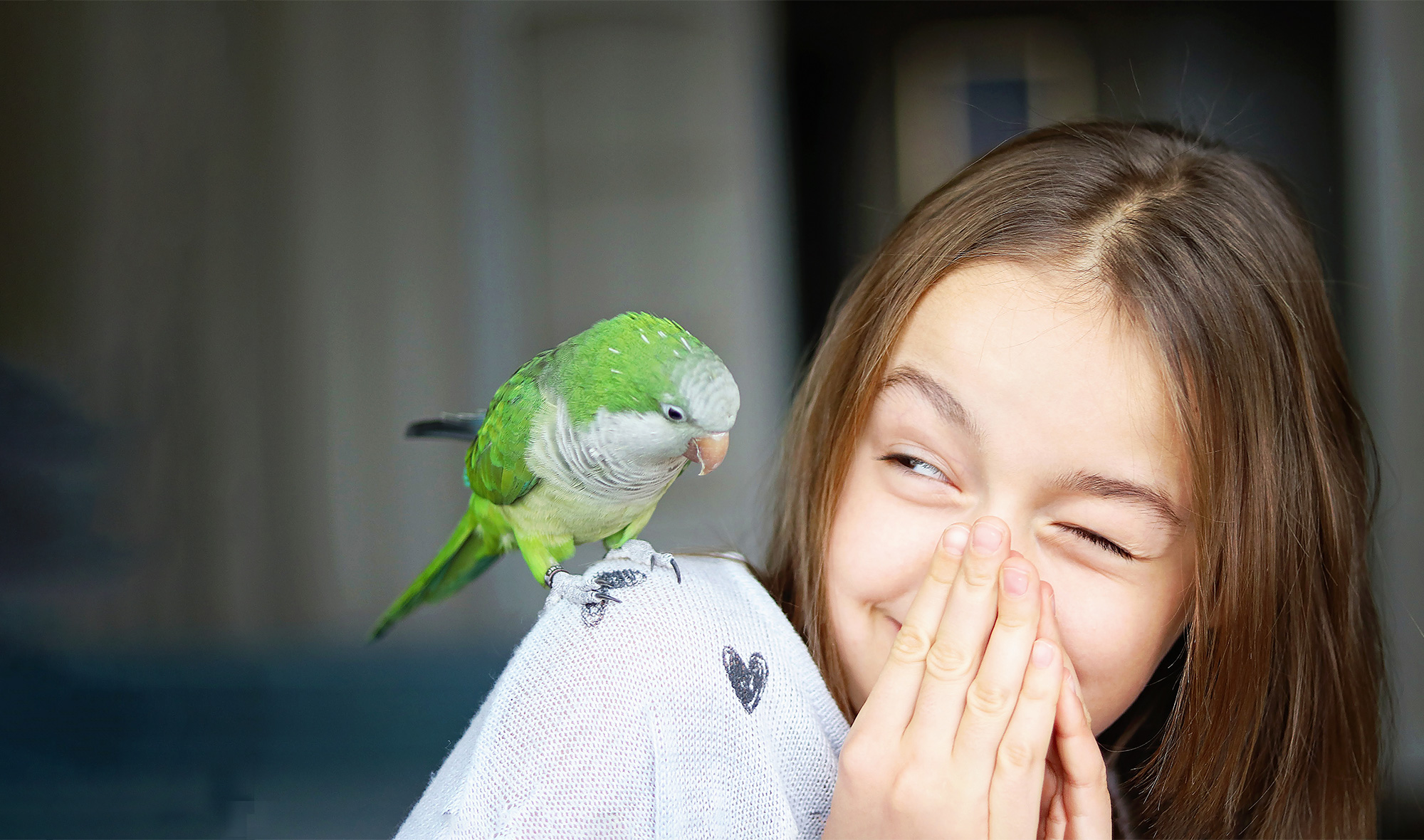
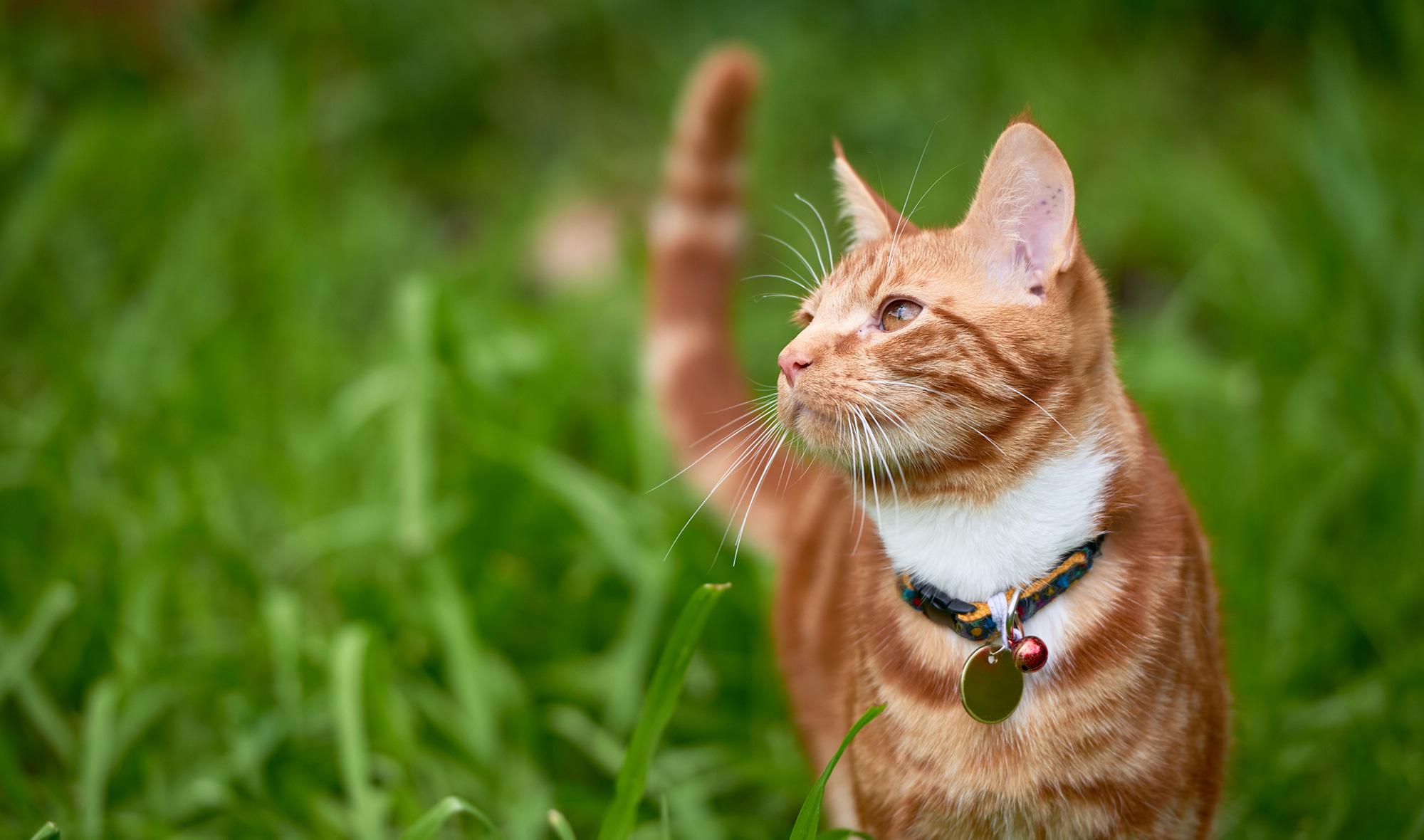



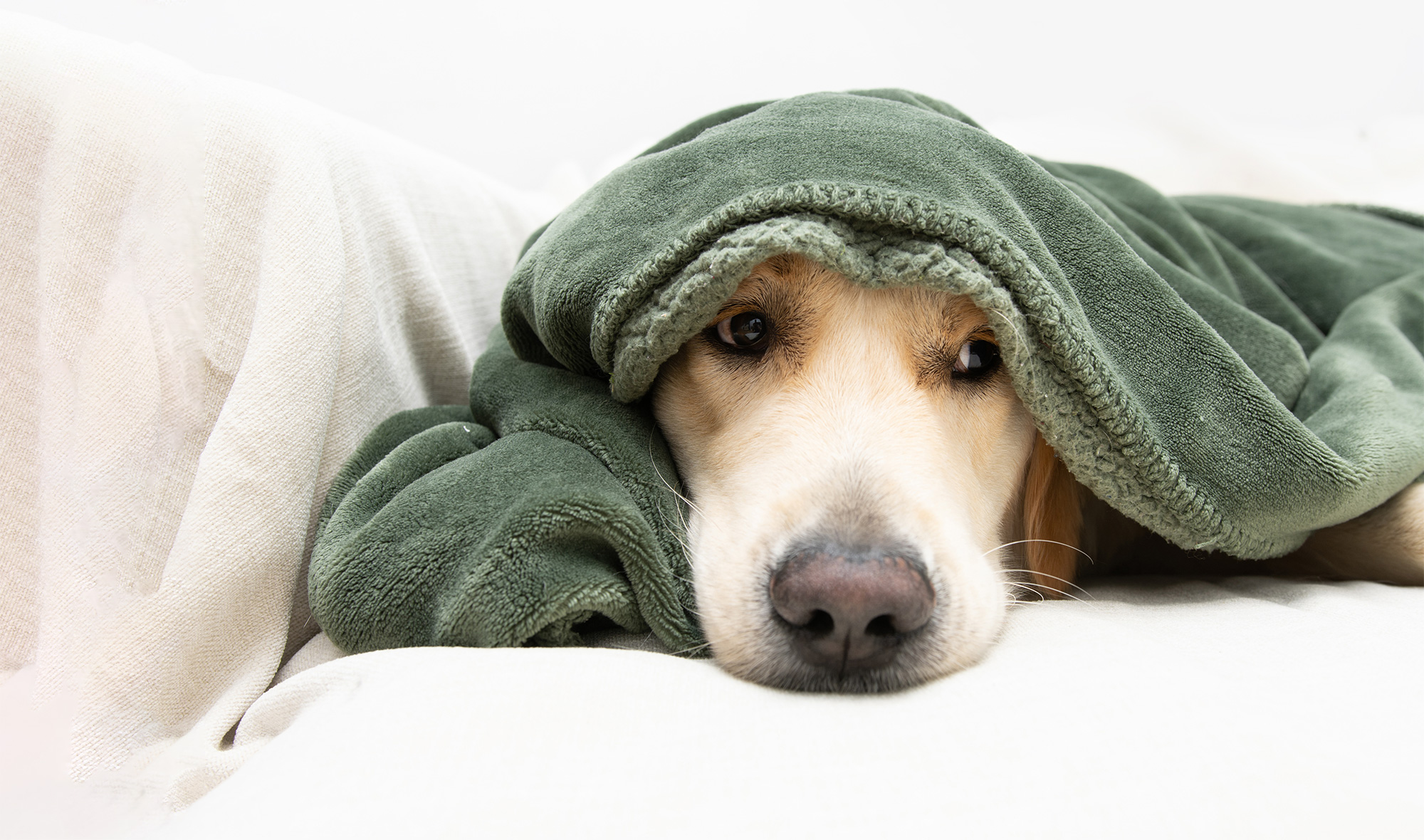
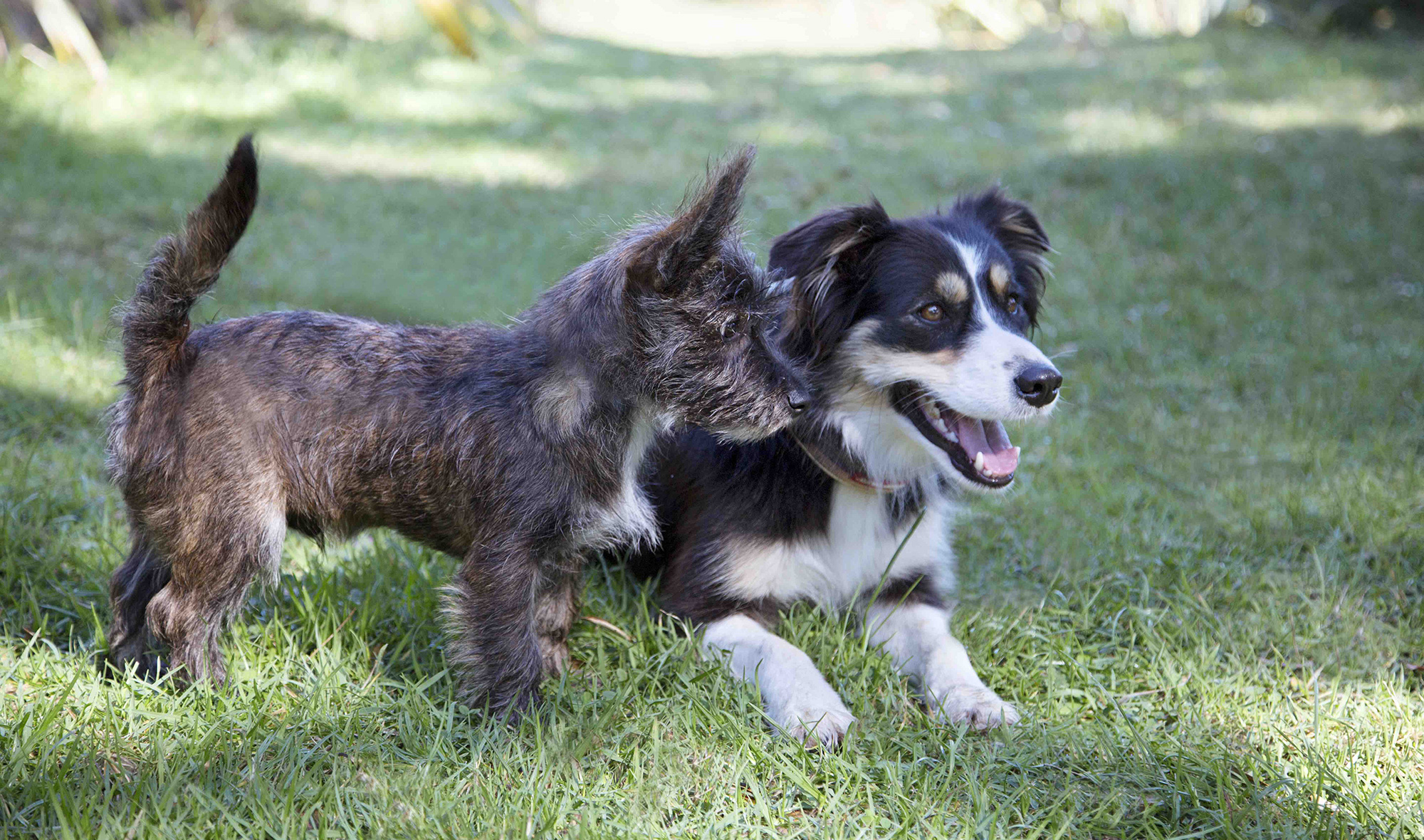

Community